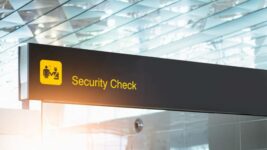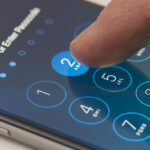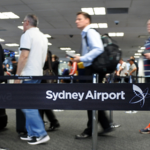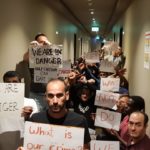The ABF Is Back to Seizing and Searching Citizens’ Phones at Airports

With the reopening of international borders, the Australian Border Force is back to its old tricks in relation to seizing phones and laptops at airports from seemingly random people exiting and entering the country, demanding passwords, and taking the electronic devices away for inspection.
On arrival back in Sydney from a trip to Fiji in the first week of the year, a local software developer and his partner collected their bags only to be told by a customs official that they should follow her over to the baggage inspection area.
The 44-year-old developer outlines that they were told to hand over their mobile phones and write down their passwords. The devices were then taken away, whilst the customs officer proceeded to conduct a half-hearted inspection of their baggage, including paying no attention to their laptops.
This is by no means the first incident like this. British Australian man Nathan Hague told Sydney Criminal Lawyers in mid-2018 that his mobile had been confiscated at Sydney airport, with officers advising that they were “inspecting for suspicious content”.
Hague, also a software developer, outlined that his device was returned to him in “development mode”, which he considered meant they could have copied all its content. And officers had refused to answer his questions in relation to what would be copied and how that could be retained.
Far-reaching powers
Section 186 of the Customs Act 1901 (Cth) provides that an ABF officer can “examine any goods subject to customs control”, which includes the reading of documents. While section 186A(2)(d) permits “making an electronic copy of information contained in” such a document.
However, as the man who recently had his device seized pointed out, unlike baggage which is searched in front of the owner, phones and laptops are taken elsewhere to inspect.
The ABF website outlines that it can retain an electronic device for up to 14 days if there is no content on it warranting its seizure, but if there is something of interest found, the confiscation period can be longer.
Then Muslim Legal Network NSW president Zaahir Edries explained just after the Hague incident, that while statistics on the numbers of people stopped for device searches are unavailable, he’d frequently heard of this occurring to people often confused as to the reasons for the seizure.
In an email, Edries went on to point out that the ABF powers are so broad in terms of violating peoples’ right to privacy, yet with no legislation protecting citizens’ rights in federal law, there is really no way of challenging these powers.
But there was one such case in November 2014, which involved a man flying out of the country having his phone taken into custody for four hours, and, over that time, an ABF officer sent two text messages from it and then deleted them without the owner’s knowledge.
The man had filed to sue in 2016, as this went way beyond legislated ABF powers.
Next time round
The software developer who had his phone confiscated on entering Sydney this month was so irked by what had happened that he posted about it on Reddit.
Outlining that he and his partner had to wait half an hour for their phones to be returned, he said the major issue he had was with the “massive violation of our privacy and the lack of transparency in the process”.
“This experience makes me hesitant to ever go overseas again,” added the man, who remains anonymous. “However, if I do, I will back everything up to the cloud before I take off, and then factory reset my phone on the return flight.”







